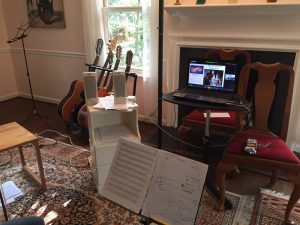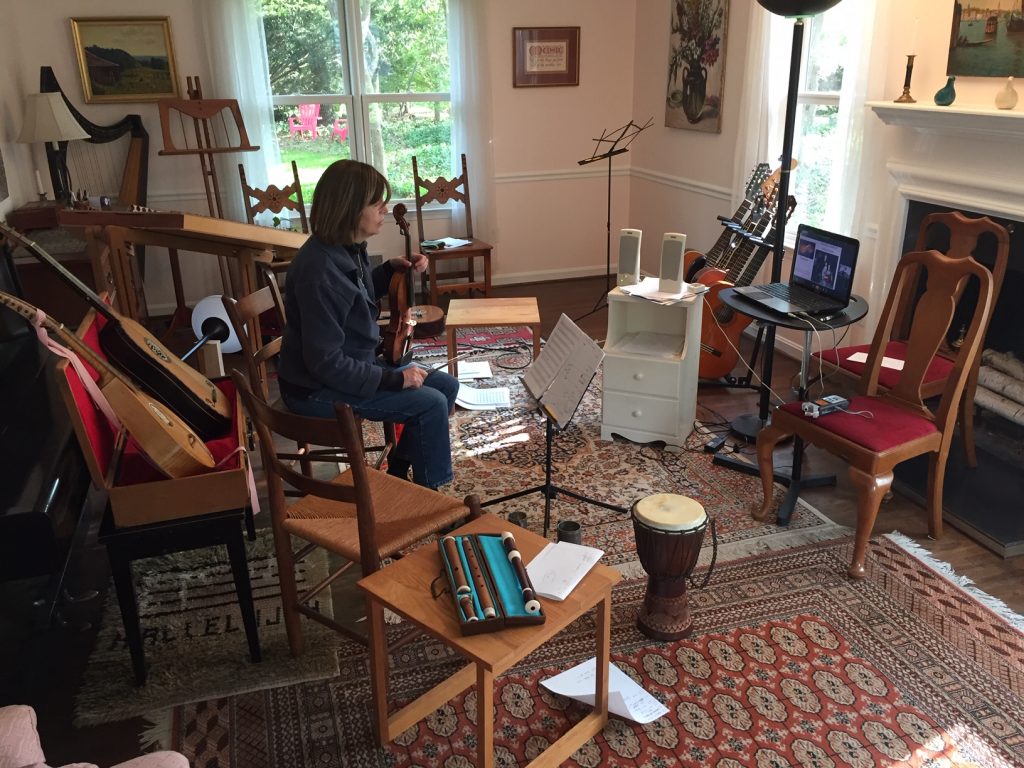Faculty Spotlights - David Hildebrand

“There were some pleasant and even humorous moments online, much as there used to be in the in-person classroom setting before.”
 David Hildebrand, Part-time Faculty, Musicology Department
David Hildebrand, Part-time Faculty, Musicology Department
What are some of your main goals as an instructor related to student learning?
First, to open students’ minds to the contextual connections of music and history. And history not as some static recitation of dates and facts, but more deeply the fact that human nature does not change – one needs simply to learn to connect motivations (love, personal expression, financial gain, religious or social activism) we feel today to the very different styles of times gone by.
Next, once a student learns to see aspects of his/her own life reflected in the music/historical record, he/she needs to be able to articulate it through words, spoken and written. If upon finishing a class of mine the student has a deeper appreciation of what we all have in common, as manifested in music history, and that student can engage others in meaningful conversation about that realization, or, even better, be struck by a newfound urge to create something in sound or on paper, then my main goals as a teacher have been met.
How did your teaching progress after you started teaching remotely?
Surprisingly smoothly. Luckily, spring break allowed the time for me getting a crash course in Zoom, so by the time of our first remote class meeting I felt comfortable conducting the class online. Indeed, the rest of the semester seemed to flow well, with my students actively embracing and supporting our new “classroom” setup, such that there were some pleasant and even humorous moments online, much as there used to be in the in-person classroom setting before.
What is a challenge you’ve encountered while teaching, and how did you address it?
The main challenge was getting up to speed with the new technology quickly — but here I add thanks to the amazing IT folks at Peabody. Help was always available and the resources for improvement were so numerous as to be nearly overwhelming.
What does your teaching setup at home look like?
For teaching my graduate seminar, probably pretty standard, but below is a shot of the studio my wife (a Peabody graduate, MM in guitar) and I share, as set up for a remote assembly program on colonial American music for 5th graders at the Gilman School.

What advice do you have for other faculty?
Not to hesitate to ask for help from others.
How do you want your students to remember this time after they have left Peabody?
I want them to look back and feel proud of being a team to get through this past semester — caring about each other, recognizing the super-organized and compassionate response on the part of the administration and faculty, and adjusting to make it work out pretty well in the end.
View David Hildebrand’s faculty page and bio.